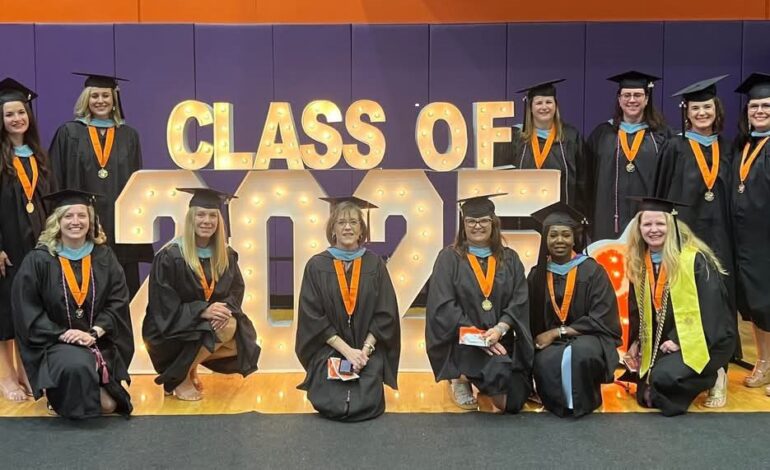Clemson Project Boosts Literacy Among Multilingual Learners

A research initiative at Clemson University has demonstrated significant benefits for multilingual learners and their educators. The program, funded by the Department of Education Office of English Language Acquisition in Fall 2022, aimed to enhance instructional capacity for teachers and support families of multilingual learners across South Carolina. As the first cohort concludes its training, the results indicate a positive impact on both classroom practices and at-home learning.
In Spring 2025, the project graduated its inaugural group of teachers and caregivers from a specialized literacy course. This program was designed to empower educators with effective strategies for teaching English for Speakers of Other Languages (ESOL) and to engage families in the literacy journey of their children. Over the course of the initiative, teachers participated in a master’s program focused on literacy, while caregivers attended weekly online sessions to foster their understanding of bilingualism and literacy development.
According to Emily Howell, the principal investigator for the project, the outcomes for teachers, students, and caregivers have been transformative. She emphasizes that the project aims to boost self-efficacy among all participants. “We want teachers, their students, and the caregivers of multilingual learners to feel capable toward literacy learning,” Howell explained. This focus on building confidence enables educators and families to effectively tackle academic challenges and apply successful learning strategies.
The initiative engaged approximately 25 teachers and caregivers per cohort, collectively impacting nearly 100 individuals. Participants hailed from six different districts in South Carolina, earning a total of 36 credit hours over six semesters. Remarkably, the program achieved a 100% completion rate for the exams required for literacy teaching and coaching for ESOL students. Feedback from educators indicates a marked improvement in their self-efficacy and familiarity with best practices for supporting multilingual learners.
One educator noted a profound shift in their perspective, stating that the coursework led them to view multilingual students as assets rather than challenges in the classroom. This shift aligns with the program’s goals of fostering a more inclusive and supportive learning environment.
Empowering Caregivers and Enhancing Student Success
Caregivers involved in the project have also expressed high levels of satisfaction with the training received. The coursework enhanced their knowledge of effective literacy practices and encouraged the establishment of daily reading routines at home. Participants collaborated on a digital book project, which allowed them to incorporate their children’s interests and cultural traditions while enhancing literacy skills.
Surveys conducted throughout the course revealed a significant increase in caregivers’ confidence and competency in supporting their children’s education. Many caregivers reported feeling more equipped to communicate with teachers and advocate for their children. One caregiver remarked, “The most important thing I have learned is how to help my child grow in her native language. I also learned how to help her with her reading and writing and make it fun to do it with her.”
The program also highlighted the crucial role that caregivers play in the educational success of multilingual learners. Participants recognized the importance of promoting bilingualism at home, understanding that proficiency in a child’s first language can facilitate the learning of additional languages. As one reading interventionist pointed out, “Caregivers are very important and are a major part of the team in ensuring the student’s success.”
Continued Growth and Future Cohorts
The project is currently working with its second cohort, further expanding its reach and impact. Howell, along with co-principal investigators Lindsey W. Rowe and C.C. Bates, along with project manager Hazel Vega and graduate research assistant Katie Crook, continue to evaluate the effectiveness of the program. The external evaluation is conducted by MN Associates, Inc., led by Kavita Mittapalli.
As the initiative progresses, the project team remains committed to enhancing literacy education for multilingual learners. They aim to provide educators and families with the tools necessary to create an inclusive and supportive learning environment, ultimately benefiting the academic journeys of countless students across South Carolina. The results thus far underscore the importance of collaboration between educators and families in fostering a culture of learning that values linguistic diversity.






